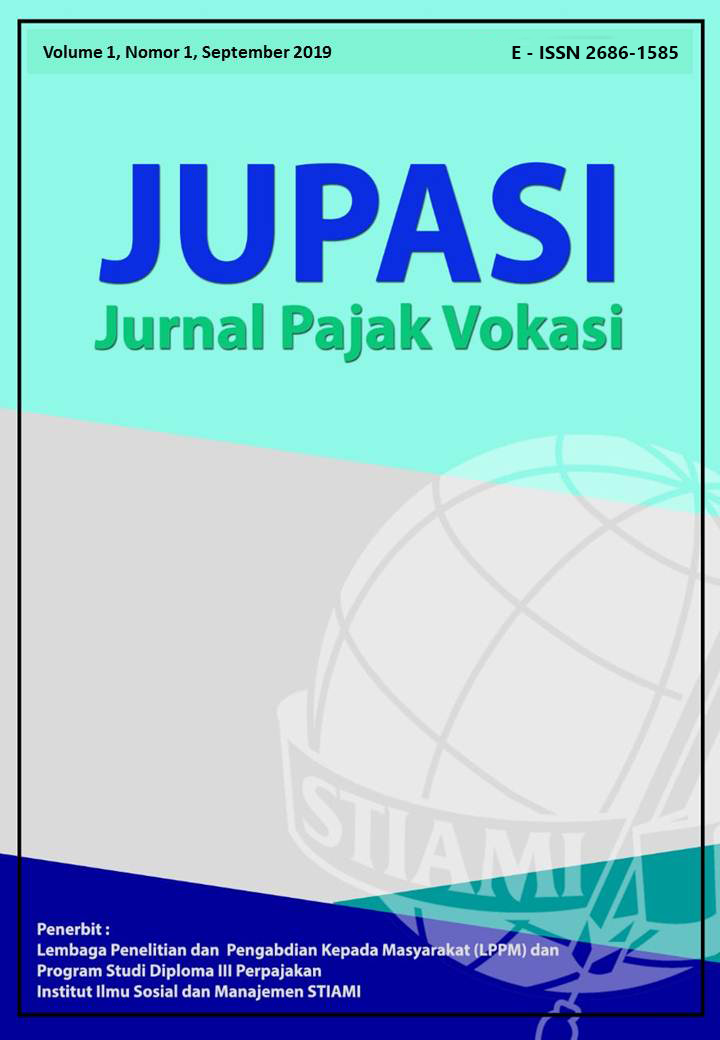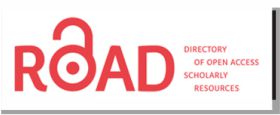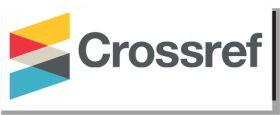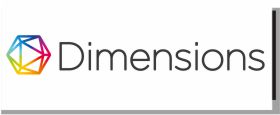| Jurnal Pajak Vokasi (JUPASI) adalah jurnal nasional yang diterbitkan oleh Program Vokasi untuk Program Studi Perpajakan Institut Ilmu Sosial dan Manajemen STIAMI. JUPASI memuat artikel dan bentuk karya tulis ilmiah lainnya tentang analisis berbagai masalah dalam bidang perpajakan. JUPASI terbit dua kali dalam setahun, yaitu setiap bulan Pebruari dan Agustus. JUPASI menerima artikel ilmiah dari para Akademisi, Praktisi dan Pemerhati dibidang perpajakan. Pengiriman artikel dilakukan dengan menggunakan template JUPASI. Redaksi menerima naskah yang belum pernah diterbitkan oleh media lain dalam bentuk apapun. Email : |

Vol 6, No 2: Maret 2025
Table of Contents
Articles
|
Tio Carlos Antonius Purba, Muhammad As’ad
|
56-62
|
|
Erika Besse Tenri Sompa, Yulianto Yulianto
|
63-67
|
|
Teguh Rahmanto, Dian Wahyudin
|
68-77
|
|
Yolan Randiansyah, Indira Santi Kerthabudi
|
78-85
|
|
Akhmad Akhsan Kholiek, Muhammad Firzah
|
86-97
|
|
Irvan Zalliwaldi, Bambang Irawan
|
98-105
|
|
Anisa Nur Khasanah
|
106-113
|
|
Cut Lean Susanti Phoenna, Panji Hendrarso
|
114-122
|









.png)






